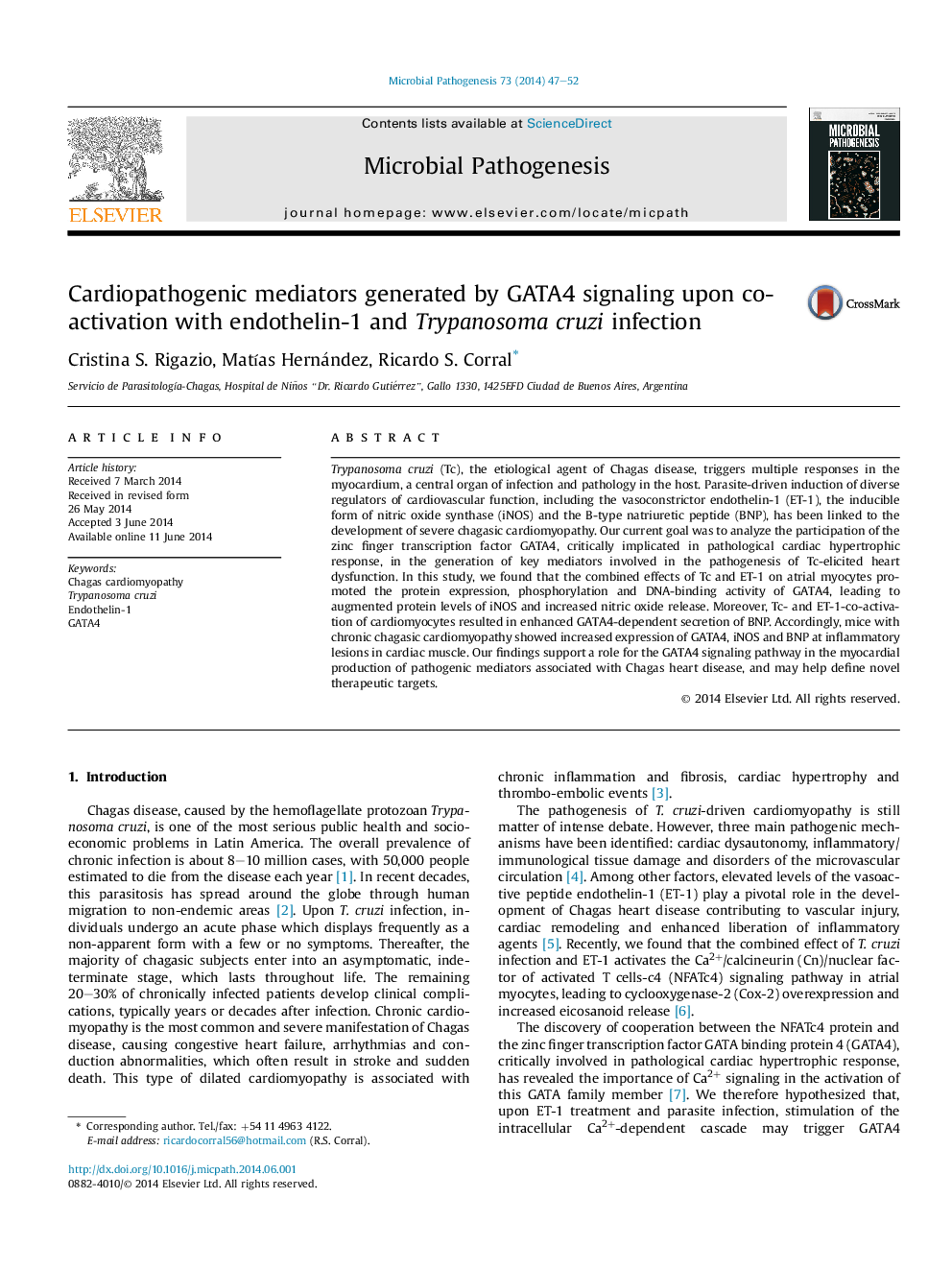| Article ID | Journal | Published Year | Pages | File Type |
|---|---|---|---|---|
| 6136256 | Microbial Pathogenesis | 2014 | 6 Pages |
Abstract
Trypanosoma cruzi (Tc), the etiological agent of Chagas disease, triggers multiple responses in the myocardium, a central organ of infection and pathology in the host. Parasite-driven induction of diverse regulators of cardiovascular function, including the vasoconstrictor endothelin-1 (ET-1), the inducible form of nitric oxide synthase (iNOS) and the B-type natriuretic peptide (BNP), has been linked to the development of severe chagasic cardiomyopathy. Our current goal was to analyze the participation of the zinc finger transcription factor GATA4, critically implicated in pathological cardiac hypertrophic response, in the generation of key mediators involved in the pathogenesis of Tc-elicited heart dysfunction. In this study, we found that the combined effects of Tc and ET-1 on atrial myocytes promoted the protein expression, phosphorylation and DNA-binding activity of GATA4, leading to augmented protein levels of iNOS and increased nitric oxide release. Moreover, Tc- and ET-1-co-activation of cardiomyocytes resulted in enhanced GATA4-dependent secretion of BNP. Accordingly, mice with chronic chagasic cardiomyopathy showed increased expression of GATA4, iNOS and BNP at inflammatory lesions in cardiac muscle. Our findings support a role for the GATA4 signaling pathway in the myocardial production of pathogenic mediators associated with Chagas heart disease, and may help define novel therapeutic targets.
Related Topics
Life Sciences
Immunology and Microbiology
Microbiology
Authors
Cristina S. Rigazio, MatÃas Hernández, Ricardo S. Corral,
